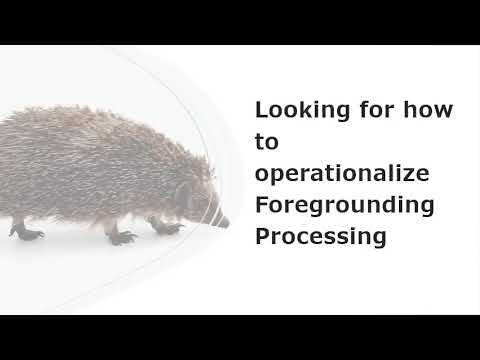 Speakers: Giulia Scapin & Frank Hakemulder @Giulia_Scapin @Hakemulder
Speakers: Giulia Scapin & Frank Hakemulder @Giulia_Scapin @Hakemulder
 Affiliation: University College Dublin & Utrecht University
Affiliation: University College Dublin & Utrecht University
Title: The U-Shaped Path to Empathy - And refining the assessment of foregrounding along the way
Abstract: Foregrounding is a key term in the empirical study of literature, yet its conceptualization, measurement, and boundaries remain debated. In this symposium series, we present fresh approaches and perspectives from esteemed scholars and emerging researchers, sparking new discussions. The present symposium explores how foregrounding shapes literary atmosphere, empathy, and reader engagement. From analyzing empathic effects of pathetic fallacy to shared reading’s impact on processing and AI’s challenges with stylistic patterns, these presentations blend innovative methodologies with theoretical insights to deepen our understanding of this essential literary concept.

 Long abstract
Long abstract
The present study investigated the possibility of enhancing foregrounding processing through Shared Reading-inspired techniques, such as reflective pauses, prompting questions, and dual-modality presentation (listening combined with reading). We assessed the effects of these manipulations on empathy toward a story character and stigmatization of individuals living with depression in three conditions (i. prompts plus audio of story being read to the participants; ii. only the prompts; iii. control group that only read the story). No significant impact was observed in terms of foregrounding processing, empathy, or stigmatization. However, the study provided further insight into the assessment of foregrounding processing and its effects. First, we propose a revision of the assessment tool of foregrounding processing, including an additional level of processing, previously merged in Shallow Processing level (Harash, 2021): the No Processing, where the readers do not detect any distortions of the normal discourse. The revised assessment tool ([Scapin et al., in prep.]) provided further evidence that empathy mediates the relationship between foregrounding processing and stigmatization of people living with depression. The findings reaffirm previous research linking foregrounding processing to empathic engagement. Specifically, participants (self-)classified in the No Processing and Full Processing profiles exhibited significantly higher empathy toward the story character than those in the Shallow, Failed or Partial Processing profiles. Importantly, this relationship was not linear; it followed a U-shaped curve, with the Failed Processing group reporting the lowest empathy levels. These results will be discussed in line of the existing theories of interpretation of complex messages (Ewoldsen et al., 2022), hypothesizing new approaches to the study of the effects of literariness.
References:
Ewoldsen, D. R., Hoewe, J., & Grady, S. (2022). A Cognitive Processing Framework for Media Interpretation. Journal of Media Psychology, 34(2), 65–76. https://doi.org/10.1027/1864-1105/a000326
Harash, A. (2021). The model of failed foregrounding. Psychology of Aesthetics, Creativity, and the Arts APA PsycNet
Scapin, G., Hakemulder, F., Balint, K. E., Konijn, E., and Cohen, J. (in prep.) Literary Sparks: Can Processing of Foregrounding be Deepened Using Shared Reading Inspired Prompts?
IGEL 2024 presentation Manipulating Foregrounding Processing with Shared Reading Inspired Prompts

